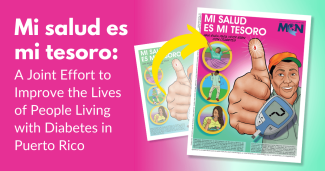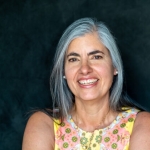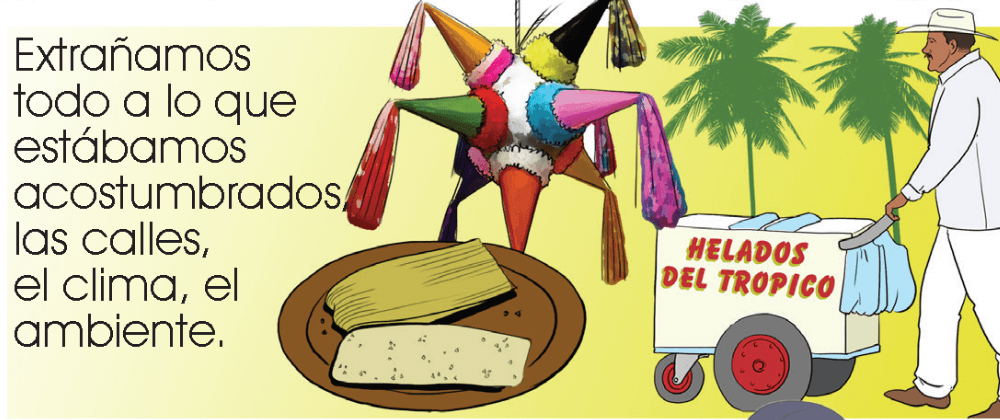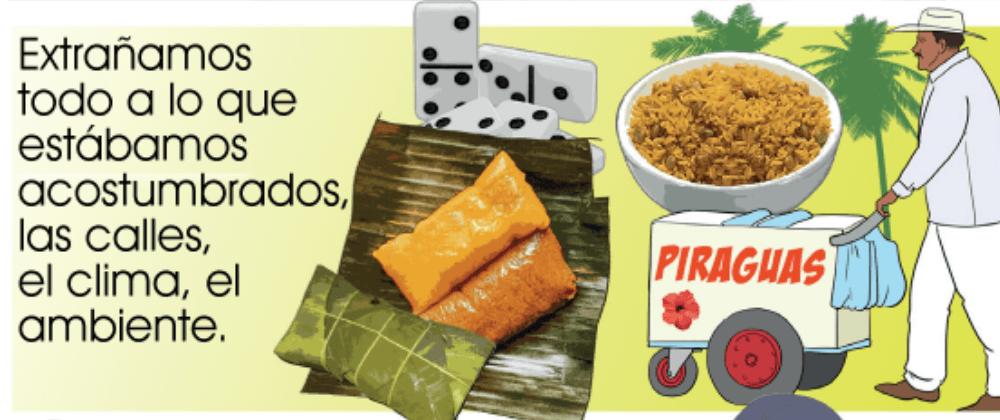Mi salud es mi tesoro: A Joint Effort to Improve the Lives of People Living with Diabetes in Puerto Rico
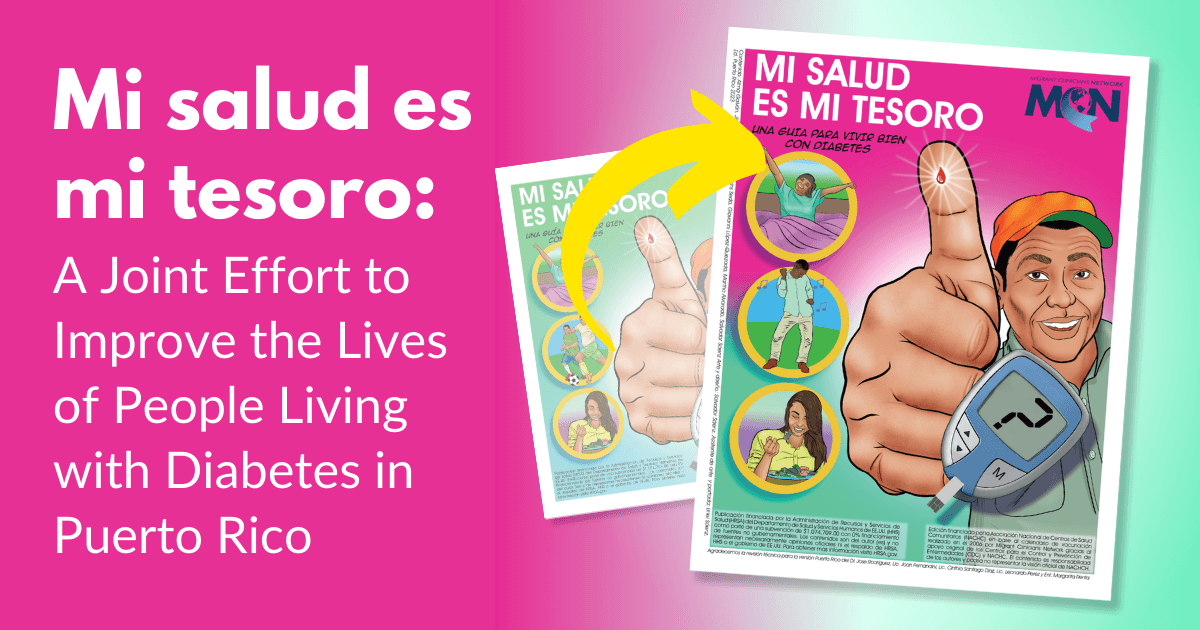
A remarkable 13.3% of the Puerto Rican population has diabetes. That’s 2% higher than the general US population, and 1.5% higher than the Hispanic US population overall. An even higher prevalence is observed in women, those over 65 years of age, people with an annual income of less than $15,000, and those with a fourth-grade level of education or less.
Given the high prevalence of diabetes in these vulnerable populations, José Rodríguez, MD, Medical Director of Hospital General Castañer in Puerto Rico, and Senior Medical Advisor for Puerto Rico for Migrant Clinicians Network (MCN), saw an opportunity to use MCN’s comic book on living with diabetes, Mi salud es mi tesoro: una guía para vivir bien con diabetes, as support material at his hospital.
This popular comic, illustrated by artist Salvador Sáenz, explores diabetes through the story of a farmworker who struggles with envisioning his life with his condition, while simultaneously facing the challenges of living in the United States as a migrant.
After using this comic for three years, it became evident how it benefited the educational efforts of the Castañer staff. "People kept asking us for the booklet until we ran out. It is not the same to give the patient a piece of paper with only text and no pictures (...) as it is to see the information in a booklet that is presented as a novela. In Puerto Rico, people are crazy about novelas. They love them!" commented Dr. Rodríguez.
When graphics and stories are combined, the information being conveyed to the patient i) becomes meaningful and relevant; ii) stimulates conversation about the health issue with health care providers, friends, and family members who support the patient, and iii) allows the patient to visualize, process, and incorporate the conveyed information into their daily practice. This approach is a participatory teaching strategy that MCN skillfully uses in its educational materials.
"We can give the booklet to the patient and tell them, ‘let’s see how we examine the feet,’ then the patient sees the foot [in the comic], how it is examined, and what they have to be looking for,” Dr. Rodríguez explained. “It is easy to carry [the comic] and take anywhere, and any member of the household can read it and remind them what to do… That also helps us to empower them.” Patients can return to the information as many times as necessary from the comfort of their homes to manage their own symptoms daily and adhere to the treatment plan that will allow them, in the long term, to prevent the progression of the disease and maintain their quality of life.
Initially, the comic book was tailored for a general Spanish-speaking audience, with a second edition translated into English. With its proven success, Dr. Rodríguez proposed to Alma Galván, MHC, MCN's Director of Community Training and Engagement, the idea of working together on adapting the comic to reach a greater number of Puerto Ricans both on the island and beyond its borders.
Adapting Mi salud es mi tesoro
To adapt the technical information on diabetes to the needs of the Puerto Rican patient, we had the valuable collaboration of Dr. Rodríguez, Joan Fernandini, and Margarita Renta, LPN, from the Hospital General Castañer; Leonardo Pérez, Coordinator of the Diabetes Prevention and Control Program and the Chronic Disease Self-Management Program of the Puerto Rico Department of Health, and the nutritionist Cinthia Santiago Díaz, also a member of the Diabetes Prevention Program of the Puerto Rico Department of Health. Deliana Garcia, MA, Chief Program Officer of International Projects and Emerging Issues for MCN, secured funding from the National Association of Community Health Centers (NACHC) to cover the costs of the adaptation.
MCN’s target audience in the original version of Mi salud es mi tesoro was Spanish-speaking migrants working in the US fields. Therefore, the narrative, the idiomatic expressions, the environments in which the story takes place, the food, the exercises, and even the colors are strongly connected to the rural reality of the farmworkers on the mainland.
Considering that patient learning can be improved by interacting with educational materials that reflect their own environments, enhance their values, customs and traditions, idioms, and social interactions, and empower them, MCN's multidisciplinary team set out to identify elements that could be modified to make the content more accessible, meaningful, relevant, and appealing for Puerto Rican patients, their families, and friends.
This MCN multidisciplinary team consisted of Jillian Hopewell, MPA, MA, Chief Program Officer, Education and Communication; Alma Galván, MHC, Director of Community Training and Engagement; and Giovanni Lopez-Quezada, Communications and Graphic Designer. Below are some examples of the adaptation made by this team:
Original Version
|
Adapted Version
|
Note the differences in the language’s idioms: carrying a "costal" vs. a "bulto" (both can be translated as "sack”). The story moves from a farm of annual row crops to a perennial Caribbean plantation. A tractor is swapped for a pickup truck or guagua.
Adaptations were also made in social practices, including traditional games (piñatas vs. dominoes) and foods (tamales vs. pasteles) that workers often miss from their native cultures.
Original Version
|
Adapted Version
|
Likewise, the team adapted the nutritional section so that patients could incorporate common and available Puerto Rican foods into their meals.
Original Version
|
Adapted Version
|
About distribution plans
Once the digital adaptation of the comic was ready, Dr. Rodríguez entered conversations with the Executive Director of the Alianza de Centros de Salud Comunitaria, Inc., Carmen Ramos, CPA, who decided to fund the printing of the updated comic, after weighing the impact it could have on the health of its 23,000 patients with diabetes.
Printed copies will also reach the 45 clinics across 40 municipalities in Puerto Rico, through Alliance 330, a group of 12 federally qualified health centers, including Hospital General Castañer.
Alianza plans to provide visiting nurses with the comic book so patients can understand their condition and diabetes self-management. “This booklet is very educational, we like the sensitivity of the language, how illustrative the content is, and its conversational tone,” Ramos said. “It's what people need; that's why we joined the effort to fund the printing and distribution costs among Alliance 330 centers."
Alliance 330's distribution plans are impressively large and strategically orchestrated. In addition to being available to the 267 primary care physicians and 150 specialists working in the Alliance, patients will have access to the diabetes comic book:
- in the waiting room of 45 clinics
- during the 30 monthly oral presentations given by educators and nutritionists in the different Alliance 330 centers,
- during educational outreach activities conducted in remote areas through its mobile care units,
- in radio segments in the program "Alianza Médica en Acción", (Medical Alliance In Action) which broadcasts every Thursday, and,
- through its Fan Page.
But distribution plans are not limited to the island’s boundaries, according to Ramos: “We have a center called Salud Integral de la Montaña (Integral Health of the Mountain) that will open its doors in Florida next year. That will be our first point of outreach to our Puerto Ricans in the United States.”
"Yes, it is possible to live with diabetes, avoid deteriorating, and continue a happy life,” Ramos emphasized. “Initiatives like these should be shared among all community health centers and their health professionals so that the best preventive and educational practices are reflected in improving health outcomes for all our patients".
- Clinicians or anyone interested in Mi salud es mi tesoro can download both the new Puerto Rico edition or the original version, which is available in Spanish and English, on this MCN page.
- To learn more about the Alliance of Community Health Centers, Inc. in Puerto Rico visit their Fan Page.
- If you are interested in speaking with a staff member about how MCN can work with your organization to provide resources or training tailored to your needs, please fill out the request form.
- Log in to post comments
